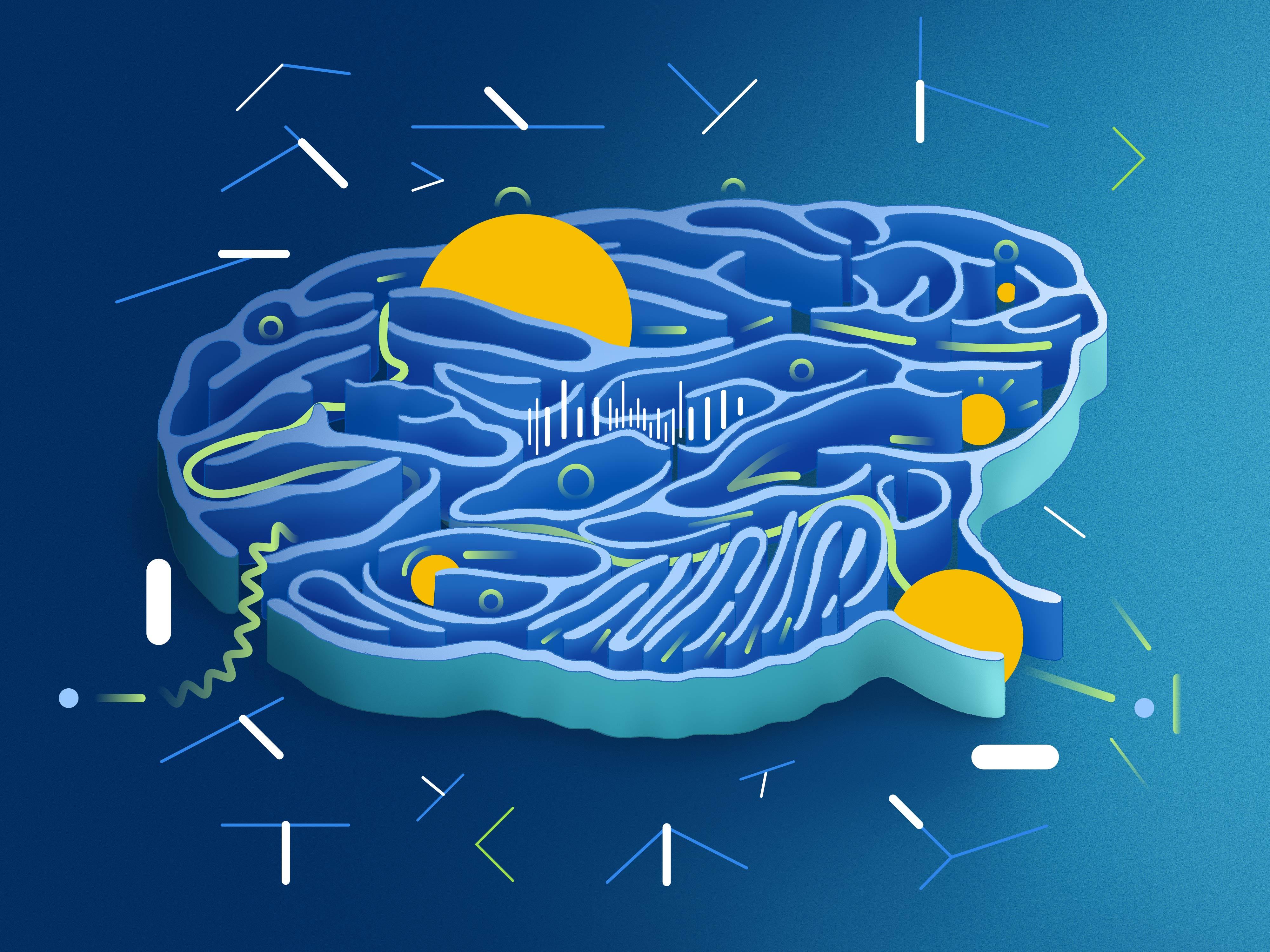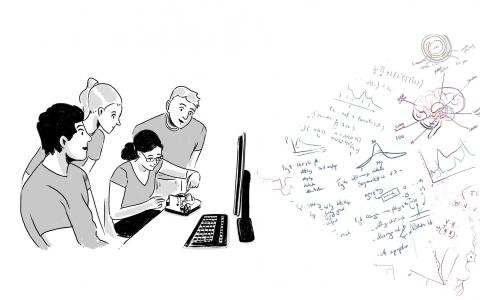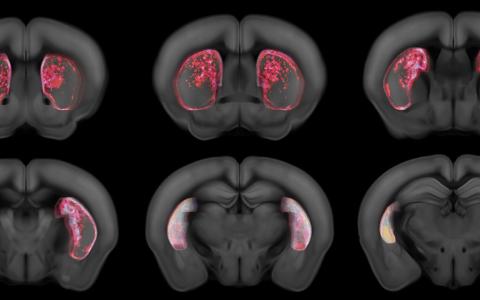
Will we ever understand the brain? 12 leading neuroscientists reflect
We asked 12 leading neuroscientists to reflect on our understanding of the brain. We asked; will we ever truly understand the brain? How would we know if we had, and how long might it take to get there?
While most suggest that a complete understanding may remain forever out of reach, they contemplate the nature of the question and the reasons for their own endeavours.
Their reflections span philosophy, the progress of modern neuroscience, the nature of science, and what it would mean to grasp the workings of the organ that defines our humanity.
Never
“It’s strange saying this as a neuroscientist, because why pursue something that we will never understand, but I cannot see there being a point, ever, at which we could say we have understood the brain. Nevertheless, I am still interested in trying!” Dr Julia Harris, Sainsbury Wellcome Centre
"I don’t think we ever will! I mean, we have been studying the humanities for much longer than neuroscience and it is not like we are approaching an understanding of human culture; the idea that we will ever understand the brain seems fanciful.
We will understand things about it in much more detail, but perhaps the more interesting question is, are there aspects of our humanity that will be forever closed off from brain science? Is there ever a level of neuroscientific explanation that will be useful and interesting to answering how great films or novels come about?
In a sense, maybe we can indeed understand some of the building blocks, like our appreciation of music, for example, but I suspect a lot of it would be beyond what is usefully described in neuroscience." Dr Mark Walton, University of Oxford
“I think we will never know when we have understood the brain. I also don’t think we will ever fully understand the brain. This is because no one can currently imagine its complexity. Understanding what neural circuits do at single cell resolution may be possible one day, but then we’d have to dig into each cell, each gene, each protein, and interactions at many different scales. So, I think that we will understand more than yesterday, but it’s a slow progression.” Professor Botond Roska, Institute of Molecular and Clinical Ophthalmology (Basel)
Not in our lifetime
“I don’t expect to have any reasonable person tell me we have understood the brain in my lifetime. I think we know so little about how the brain works – we barely understand how a single neuron computes information, which is the scale I’ve been looking at, including what is happening at the dendritic branches and how that relates to behaviour. I think we’re far away, which makes it very exciting for me.” Dr Megha Sehgal, University of California, Los Angeles
“I actually don’t think we will ever achieve full understanding of the brain because we can ask evermore detailed questions. I think the real question should be, at what point does it make sense to stop asking any more questions? I’m sure that, once we reach that point, we will know. But we are very far away from that and I don’t think it will happen in our lifetime.
In terms of what it means to understand, I want to give a slightly different answer because, as a scientist, I think it’s often very clear when you understand something. We as scientists are trying to study something that is not yet known. There are rare moments where you see the result of an experiment and all of a sudden it becomes clear and you understand something that you did not before. Usually shortly after, you ask yourself why you did not see this before!
In those moments, you clearly know that that’s the answer. All of a sudden you’ve jumped ahead, and now you see 50 other questions that open up. And that is when you can see which direction you are going in. To me it’s kind of like going for a hike.
Let’s say you go to the alps and ask yourself “How do I get to the top of this mountain?”. You don’t know. But you start walking and see that there is a path, this way and that way, as you go. So you continue, and it really feels like a tall mountain at times (especially in science). During that hike, you might not always be sure that you are going the right way, but sometimes you come around a corner and you can see ahead. Eventually you might get to the top where you actually wanted to end up. At that point, you know that you were on the right track and you can now see more clearly.” Dr Martin Munz, Institute of Molecular and Clinical Ophthalmology at Basel

Illustration of the brain. Credit: Gil Costa and Joana Carvalho
It depends on the definition of understanding
"I can’t imagine that we ever will know this for sure. First, we would have to define what it means to understand the brain. There are many different ways of understanding in terms of being able to predict, model, manipulate behaviour. The other aspect is for what purpose are we trying to understand the brain? In law, when we think about offering evidence for a particular proposition, the question is always contextualised: for what purpose?
We clearly understand that certain brain stem functions are essential for the maintenance of life and cessation of those functions is irreversible and leads to death. For the purposes of defining life and death, that is a clearly understood part of the brain. If we’re talking about understanding consciousness, that’s a very different question that also relies on figuring out the constructs. These are not simple questions and we have to come at them from multiple angles.
I don’t think it is going to be within the capability of any single human brain to understand such incredibly complex things. So, the question becomes, how would we express the shared body of knowledge in a way that could be comprehended? Do we do that by analogy, by raw computational power and algorithms?
It is a fun question to think about, but I’m not sure we’ll ever get there. In large part because the system is complex, some of that is a technical problem, but also because of the limitation of our tools to describe it, to analytically parse the questions. This is why we still need philosophers!
Our limits of understanding the brain might be limited not because of the technical expertise but because of the capacity for language to discuss what we’re talking about." Professor Emily Murphy, University of California Hastings College of the Law
"I think that ‘understand’ is a very big word. Science rarely declares victory and says that, for example, we now understand fundamental particle physics. We have this incredibly predictive model of particle physics. And in some sense, we understand a most huge amount. But there are still aspects of the model which seem not to be true or that people are still working on.
And the brain is a much more complicated system. The chance that we'll ever have a complete understanding of it, with nothing at all left underspecified is essentially zero. I don’t think we'll ever understand it in that way because it's just too complicated.
But the level of description that I would be happy with might be a very different level of description that somebody else is happy with. You could have a coarse level of description, like one of these inaccurate models, which is satisfactory for most of the questions that I would like to ask. And then we've understood that piece of behaviour or that part of the brain for doing that – sufficient to make good enough predictions, or design mostly effective therapies when something goes wrong. But that could still not be a fuller description that would satisfy someone else.
So the enterprise is never really done. But I do hope that we will understand enough about the brain and behaviour in the medium term in order to start to help make predictions in psychiatry and design treatments. With important exceptions, much such progress seems unlikely to be based on a detailed knowledge of the molecular basis of plasticity in some particular synapse, for instance. It may be informed by such a small scale, but it won't be wholly based on that. We don't need to have a perfect model or understanding of the brain to make medical progress." Professor Peter Dayan, Max Planck Institute for Biological Cybernetics
Is it even possible?
"We don’t know how much there is left still to know! I guess it is a lot as every time you find something, it opens up so many more questions. I don’t know if it is even possible for us to fully understand something that we didn’t make in the first place." Dr Teresa Guillamón Vivancos, Instituto de Neurociencias de Alicante
"The first thing that comes to mind when somebody mentions the concept of understanding the brain is that from a philosophical point of view, people have argued that a system cannot fully describe itself within itself. But when do we have an understanding of the brain? I don’t think the answer is useful. I think the process of getting towards an answer, even if we will fail at eventually getting it, is actually going to give us the most information.
But to try and answer the question: I don’t think we will ever fully understand every detail of the brain, at every level, because there is too much going on there. However, we can certainly understand basic principles and relations, e.g. starting with psychology – provide input and measure behaviour. Maybe this is a very coarse understanding of what happens in the black box, but using various clever approaches, cognitive processes could already be identified without ever measuring in the brain.
Presently, neuroscience is at a point where we are trying hard to move away from understanding single/restricted problems like spatial coding or visual processing. Rather, we are trying to integrate all this into how the signals that we see in the brain might work together, from sensory to motor, and including feedback and other internally generated signals, reflecting all kinds of activity patterns (like simple motor commands and possible internal states). Still, we do not understand how information is truly represented in the brain. What we see is a reflection of that, in the activity of visual neurons, in our case. But that only tells us spike rate and doesn’t tell us what the direct purpose of those spikes is. There is still a long way to go there.
What I think is really nice about studying the brain is that there are so many different levels at which you can look. At every level, the complexity is at least as big as at any other level. So, if I zoom in, everything stays as complex as when zoomed out and there are the same number of variables. One might think that when you look at the whole brain, there are much more variables than if one were to zoom in at the single cell, where it all might seem to get relatively straight-forward and activity is reducible to: active or non-active. But actually, a single cell is a huge piece of machinery that is incredibly complex. One could start going down to even smaller levels and there would still be a lot of complexity and detail.
In order to truly understand the brain, how all those levels interact with one another (if they all do so), or where the most important parts are, there is a certain amount of integration needed across those levels. I don’t think neuroscientists will be out of a job in my lifetime!" Dr Pieter Goltstein, Max Planck Institute for Biological Intelligence (Munich)
"One could imagine a very simple answer to this question, which is ‘If I make a replica of the system, then I understand it’. But, to my mind, this would not really be satisfactory. To me, if I understand something, I’m able to make some kind of internally logical prediction about it. If I understand something, I can make a guess as to ‘If this happens, then I should see something else.’ That to me means I understand something.
But the concept of predictability can be very vague. I would be claiming that I understand gravity if I know that when I drop an apple it will fall to the ground. The prediction is possible, but what is the use of actually understanding it? If I understand general relativity, I would be able to know how a black hole works. There are different levels of this.
It’s the same way with the brain. I think at this point, if we were given a circuit of neurons, we don’t even have general rules to make a guess about what might happen in that circuit. So to me, getting some understanding would mean being able to make a good guess about what would be happening if I looked at a circuit or a group of neurons in the brain, their connections and activity, and saying, ‘I think this neuron will be getting this result.’ And if we test it, we can say that is true or not. That would mean I understood something about this system. That is a level of understanding that would make me happy." Dr Arjun Bharioke, Institute of Molecular and Clinical Ophthalmology at Basel.
Eventually!
"It will take forever. I think science has a lot of similarities with perception. First, it’s loopy. In perception, we have a concept and a prediction – a motor-sensory loop in which the motor part is the prediction. We test it by the interaction with an object, we have a sensory update, and we converge on something to form perception.
Science is the same but instead of a single brain, it’s a group of people having a theory, doing experiments, confronting it with reality, updating the theory, etc. until you converge. So, by definition, full convergence will never be achieved. But we can get to satisfactory levels of understanding.
In neuroscience, we go back and forth between models. There is a loop between theory and experiment, and the loop attempts to converge. In addition, I think synthesis is an essential component in the loop. We find synthesis very helpful. As the physicist Feynman said, ‘what I cannot create, I do not understand.’ Building it helps you immediately see what cannot work. If you build something based on a theory, and it becomes clear that it cannot work, then you have to fix the theory. And if it does work, you can see how it works. Overall, since this progress is achieved within a convergence process, I think we can never get full understanding. Still, practical understanding, which for example can help us building robots or help impaired people overcome problems in perception or speech, can be gradually achieved.
In terms of predicting when things will happen, it’s hard for me to tell because I’m now addicted to the dynamic closed-loop view. My belief is that if more people adopt this dynamic closed-loop approach, our progress will be much faster. We should drop the open-loop view, I suggest. According to the open-loop view, the brain works in a step-by-step, feedforward, static (in the sense of a state machine) manner. Even when advocates of open-loop functioning talk about prediction, it’s often a kind of a static view of prediction – there is a state of prediction and a state of action or sensation, and you compare the states. It’s a very static view of computation. If you adopt the dynamic view, you talk about state-less flow of signals, or information, which interact continuously. It is harder to model, or rationally capture, but admitting it will take us forward much faster, I believe.
What about computation? According to the dynamic view, the term computation might be misleading when interpreted in the way done by David Marr. The Marr school refers to brains as machines attempting to solve known tasks, ignoring the fact that brains have evolved, dynamically, while managing to survive, continuously. They were never given tasks. Thus, assuming that brains are machines attempting to solve tasks is more misleading than helpful in our attempt to understand how they work." Professor Ehud Ahissar, Weizmann Institute of Science
"I think understanding the brain will involve:
1. Being able to build systems that show the same generalization, flexibility, and data-efficiency, and common-sense of humans. Current AI systems are far from that.
2. Being able to map this system in detail to the neurobiology of the brain all the way down to microcircuits of the cortex, thalamus, and hippocampus. At that point we’ll be able to do neurobiology experiments virtually.
It is a challenging problem, so it is not easy to predict how long it will take. The challenges are not just technical — it is the challenge of bringing together a team with the right perspective, and keeping it focused on the right targets for a long enough duration. While all the excitement around AI is a good thing to bring attention to AGI, it can also act as distraction because there are many exciting applications that can be built from already existing technology. So, at a personal level, many people go through the explore-exploit dilemma. Exploiting can bring more immediate rewards, whereas exploring can be lonely and unrewarding. The combination of technical and sociological challenges make it really hard to predict — who knows, even I might get distracted by the prospect of building an exciting new startup!" Dr Dileep George, DeepMind and Vicarious AI


